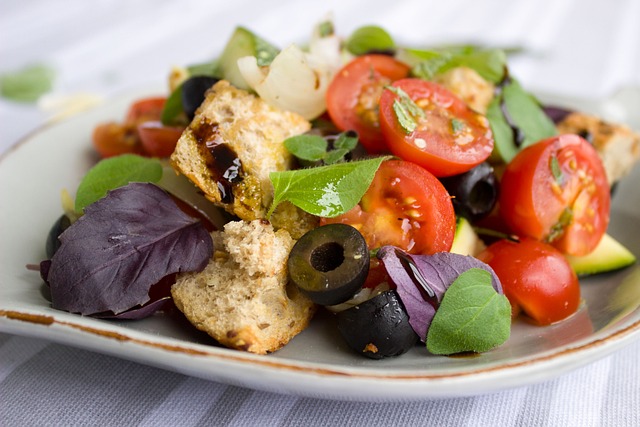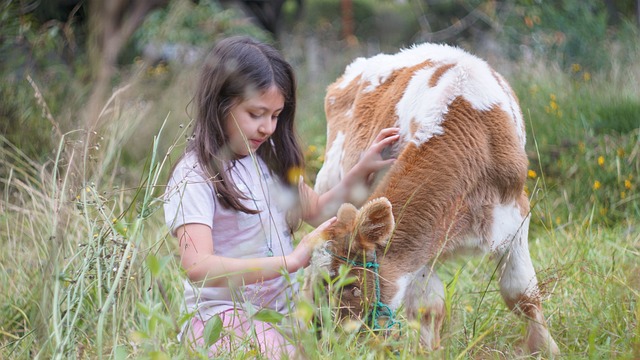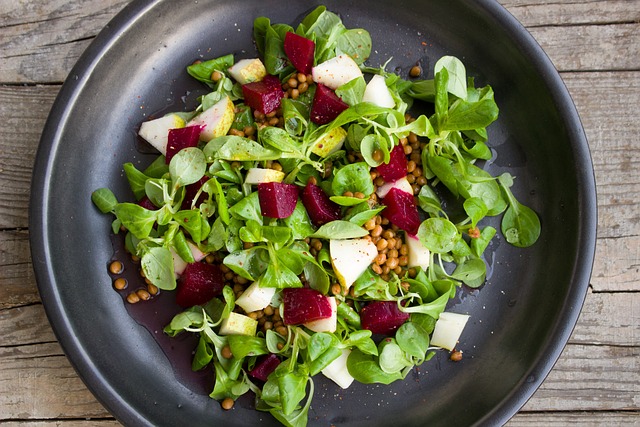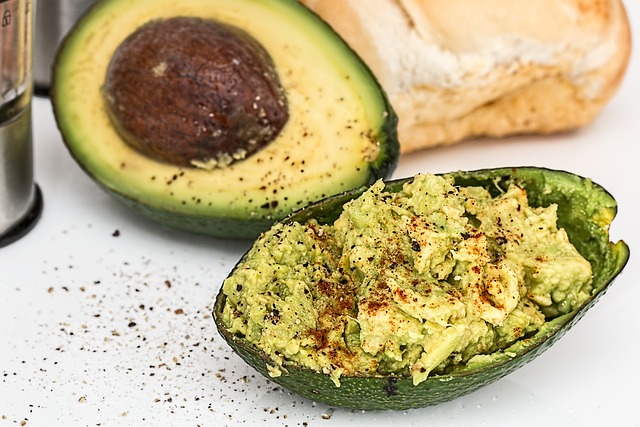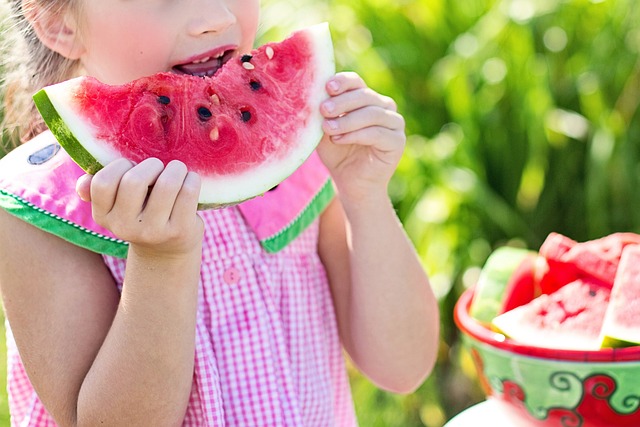Vegan Cooking and the Importance of Variety in a Child’s Diet
In recent years, vegan cooking has gained significant popularity as more and more people embrace a plant-based lifestyle. This dietary choice, which excludes all animal products, has not only shown to benefit adults but is also becoming increasingly recognized for its potential benefits for children. Vegan cooking offers a wide variety of nutritious and delicious options, making it an excellent choice for parents who want to provide a balanced and healthy diet for their children.
Nutrition plays a crucial role in a child’s growth and development. It is essential to ensure that they receive adequate nutrients to support their physical and cognitive development. A well-planned vegan diet can provide all the necessary nutrients. From protein and calcium to iron and vitamin B12, plant-based sources can offer these essential nutrients in abundance.
Table of Contents
Benefits of a Vegan Diet for Children
A vegan diet for children offers numerous potential benefits that can significantly impact their overall health and well-being. One of the most significant advantages is the lower risk of obesity and chronic diseases. By eliminating animal products from their diet, children can avoid the high-calorie, high-fat foods that contribute to weight gain and obesity. This reduction in calorie intake combined with the abundance of nutrient-dense plant-based foods can help children maintain a healthy weight and reduce their risk of developing obesity-related diseases like diabetes and heart disease.
In addition to weight management, a vegan diet encourages children to obtain essential nutrients from plant-based sources. By focusing on whole grains, fruits, vegetables, legumes, and nuts, children can easily meet their nutritional needs. Plant-based foods are often packed with fiber, vitamins, and minerals vital for growth and development. For example, fruits and vegetables provide an array of vitamins and minerals, such as vitamin C, potassium, and folate, which support immune function, bone health, and brain development. By emphasizing these nutrient-dense options, parents can ensure their children receive a wide range of essential nutrients in their diet.
Another key benefit of a vegan diet for children is the reduced risk of certain chronic diseases. Numerous studies have shown that plant-based diets, when properly planned, are associated with a lower risk of developing conditions such as heart disease, high blood pressure, and certain types of cancer. Plant-based diets tend to be lower in saturated fat, cholesterol, and animal protein, all of which have been linked to these chronic diseases. By adopting a vegan diet from an early age, children are being given the tools to establish healthy eating habits that can have long-term benefits for their overall health.
Furthermore, a vegan diet encourages children to explore and enjoy a wide variety of foods. By incorporating a diverse range of plant-based options, parents can expose their children to new flavors, textures, and tastes. This variety not only keeps meals interesting and exciting but also ensures that children are obtaining a wide range of nutrients necessary for their growth and development. By encouraging experimentation and introducing new foods regularly, parents can help their children develop a healthy relationship with food and develop a lifelong love for diverse, plant-based meals.
In conclusion, a vegan diet can provide numerous benefits for children, including a reduced risk of obesity and chronic diseases, as well as the opportunity to consume essential nutrients from plant-based sources. By encouraging a diverse range of foods and focusing on nutrient-dense options, parents can support their child’s growth and development while introducing them to a world of delicious and healthy vegan meals. Embracing vegan cooking and offering children a diverse and nutritionally balanced diet is a wonderful way to raise healthy and compassionate individuals.
Importance of Variety in a Child’s Vegan Diet
Ensuring a diverse range of foods in a child’s vegan diet is crucial for their overall development. Variety plays a significant role in providing essential nutrients that support their growth, energy levels, and overall well-being. A monotonous diet, on the other hand, can lead to potential nutrient deficiencies and imbalances.
By incorporating a wide variety of plant-based foods, children can access a multitude of essential nutritional elements. Fruits and vegetables not only provide vitamins and minerals, but they also contain phytonutrients, which have powerful health benefits. Whole grains offer fiber for digestive health and steady energy release. Legumes are valuable sources of protein, an important component for muscle growth and repair. Nuts and seeds provide healthy fats and essential micronutrients such as iron and zinc.
Furthermore, consuming a diverse range of foods exposes children to different flavors, textures, and aromas, helping them develop a wider palate and a more varied diet. This exposure can create a lifelong appreciation for healthy eating and reduce the likelihood of picky eating habits. In addition, a varied diet promotes a healthy gut microbiome, which plays an essential role in digestion, nutrient absorption, and overall immune function.
To ensure variety in a child’s vegan diet, parents can explore different types of fruits, vegetables, grains, legumes, nuts, and seeds. Seasonal produce can provide an ever-changing selection of options, while experimenting with different cooking methods and flavor combinations can add excitement to mealtimes.
By embracing variety and offering diverse plant-based foods, parents can support their child’s growth, development, and overall health. Developing a well-planned vegan diet that includes a variety of foods will provide children with the essential nutrients they need for a thriving vegan lifestyle.
Key Nutrients for Children on a Vegan Diet
Children require essential nutrients for their optimal growth and development. While some may worry about meeting these nutritional needs on a vegan diet, it is entirely possible to achieve through careful planning and incorporating a diverse range of plant-based foods.
One crucial nutrient that children need is protein. Contrary to popular belief, it is quite easy to obtain adequate protein on a vegan diet. Plant-based sources such as legumes (like beans and lentils), tofu, tempeh, seitan, and quinoa are excellent sources of protein and can be incorporated into daily meals.
Calcium is vital for the development of strong bones and teeth. Vegan-friendly sources include fortified plant milks, tofu, leafy green vegetables (such as kale and broccoli), and calcium-set tofu. In addition to calcium, obtaining enough vitamin D is important for calcium absorption. Sunlight exposure is the most natural way to acquire vitamin D, but fortified plant milks and vitamin D supplements are also recommended.
Another essential nutrient for children is iron. While plant-based sources of iron are non-heme and may not be as easily absorbed as heme iron from animal products, combining iron-rich foods with vitamin C-rich foods can enhance absorption. Some iron-rich plant foods to include in a child’s vegan diet are lentils, soybeans, dark leafy greens, and fortified cereals.
Omega-3 fatty acids, particularly alpha-linolenic acid (ALA), are crucial for brain development and function. Flaxseeds, chia seeds, hemp seeds, and walnuts are all excellent sources of ALA and can be easily incorporated into meals and snacks.
Lastly, vitamin B12 is an essential nutrient that is primarily found in animal products. It is crucial for nerve function and the production of red blood cells. While it may be challenging for vegan children to obtain vitamin B12 solely through food sources, fortified plant milks, breakfast cereals, and nutritional yeast can help meet their requirements. Vitamin B12 supplements are recommended as well.
By including a variety of protein-rich foods, calcium sources, iron-rich foods, omega-3 fatty acids, and incorporating vitamin B12 fortified foods or supplements, parents can ensure their vegan children receive all the essential nutrients for healthy growth and development.
Remember, consultation with a pediatrician or a registered dietitian is always advised to ensure that a child’s specific nutritional needs are being met. With proper planning and attention, a well-planned vegan diet can provide all the necessary nutrients for a child’s thriving health and development.
Meal Planning Tips for a Child’s Vegan Diet
When it comes to ensuring a child’s vegan diet is nutritionally balanced, meal planning plays a crucial role. Proper meal planning ensures that children receive all the necessary nutrients their growing bodies need. Here are some practical tips for parents to consider:
1. Plan Ahead for a Nutritious Diet
To ensure a child’s vegan diet is nutritionally balanced, it is important to plan meals in advance. This includes taking into consideration the daily recommended intake of essential nutrients, such as protein, iron, calcium, and vitamins. Variety is key, so aim to include a diverse range of plant-based foods to provide a wide array of nutrients.
2. Emphasize Meal Prep and Kitchen Organization
To make meal planning easier, set aside dedicated time for meal prep. Wash, chop, and store fruits and vegetables in advance to make them easily accessible. Additionally, keep a well-organized kitchen with essential pantry staples like grains, legumes, nuts, and seeds. This way, you’ll always have the basic ingredients on hand to create balanced meals for your child.
3. Incorporate a Variety of Plant-Based Foods
To ensure your child’s vegan diet is well-rounded, it’s important to incorporate a variety of plant-based foods in their meals. Include a mix of whole grains, legumes, fruits, vegetables, nuts, and seeds to provide all the necessary nutrients. Rotate ingredients and recipes frequently to avoid boredom and keep their meals exciting.
4. Sample Meal Plans for Inspiration
To give you a head start, here are a few sample meal plans for a child’s vegan diet:
Breakfast:
- Overnight oats topped with berries and a drizzle of almond butter.
- Whole grain toast with avocado and tomato slices.
Lunch:
- Quinoa salad with roasted vegetables and chickpeas.
- Veggie-packed stir-fry with tofu and brown rice.
Dinner:
- Vegan chili with kidney beans, diced tomatoes, and spices.
- Lentil and vegetable curry with quinoa or whole grain naan bread.
Snacks:
- Sliced fruits with nut butter.
- Veggie sticks with hummus.
By following these meal planning tips, parents can ensure that their child’s vegan diet is nutritious, well-balanced, and enjoyable. Remember to listen to your child’s preferences, involve them in meal choices, and create a positive and supportive environment around vegan cooking. With proper meal planning, raising a healthy and thriving vegan child is entirely possible.
Note: Always consult a healthcare professional or registered dietitian before making significant dietary changes for your child.
Exploring Vegan Recipes for Kids
When it comes to cooking vegan meals for kids, the possibilities are endless. Exploring the exciting world of vegan recipes suitable for children opens up a whole new realm of nutritious and delicious options. With a little creativity, parents can create meals that not only appeal to their little ones but also provide them with essential nutrients.
One of the keys to getting kids excited about vegan cooking is to make the meals fun and visually appealing. Sharing popular and easy-to-make vegan recipes can help parents introduce their children to new flavors and textures. From colorful smoothie bowls to crispy veggie nuggets, there are countless options that will surely win over even the pickiest eaters.
Starting with breakfast, parents can whip up a batch of fluffy vegan pancakes topped with fresh fruits and a drizzle of maple syrup. For lunch, children can enjoy a hearty chickpea salad sandwich or a creamy avocado pasta packed with veggies. Moving on to dinner, a flavorful plant-based curry served with brown rice or a veggie-loaded pizza can be a hit with kids of all ages. And of course, the fun doesn’t end without snacks, such as homemade energy balls, crispy kale chips, or fruit skewers with dairy-free chocolate sauce.
By including a variety of plant-based recipes in a child’s diet, parents can ensure that their little ones are getting a wide range of nutrients. It is important to include a variety of vegetables, whole grains, legumes, and fruits to provide essential vitamins, minerals, protein, and fiber. Experimenting with different flavors and textures is also a great way to expand a child’s palate and encourage a love for healthy eating.
In conclusion, exploring vegan recipes for kids can be an exciting and rewarding experience. By incorporating a variety of plant-based meals into a child’s diet, parents can provide them with the nutrients they need for healthy growth and development. From delicious breakfast options to satisfying dinners and tasty snacks, there is no shortage of vegan recipes that are both appealing to kids and packed with nutritional value. So why not embark on this culinary adventure and introduce your children to the wonderful world of vegan cooking?
Addressing Concerns and Misconceptions
As vegan cooking and plant-based diets continue to gain popularity, it’s essential to address common concerns and misconceptions about vegan diets for children. Many parents worry that their child may not receive adequate nutrition without including animal products in their diet. However, numerous studies have shown that well-planned vegan diets can provide all the necessary nutrients for healthy growth and development.
One of the main concerns is the availability of essential nutrients like protein, iron, calcium, and Omega-3 fatty acids. Contrary to popular belief, these nutrients can be easily obtained from a variety of plant-based sources. Protein can be found in foods such as lentils, chickpeas, tofu, and quinoa. Iron can be obtained from sources like dark leafy greens, beans, and fortified cereals. Plant-based sources of calcium include tofu, fortified plant-based milk, and leafy greens. Omega-3 fatty acids can be derived from chia seeds, flaxseeds, and walnuts.
Another misconception is that vegan diets lack the necessary variety to provide all the essential nutrients. However, a well-planned vegan diet can actually offer a more diverse range of foods compared to a traditional diet. By incorporating fruits, vegetables, whole grains, legumes, nuts, and seeds, children can benefit from a wide array of vitamins, minerals, and antioxidants.
Furthermore, concerns about growth and development in vegan children are unfounded. Studies have shown that vegan children have similar growth rates and overall health as their non-vegan counterparts. Adequate caloric intake, diverse food choices, and attention to key nutrients are pivotal in ensuring optimal growth and development in vegan children.
It’s crucial to rely on evidence-based arguments to debunk these myths and reassure parents. Numerous scientific studies have demonstrated that well-planned vegan diets can meet the nutritional needs of children. In fact, research has shown that vegan children often have lower rates of childhood obesity and reduced risk of chronic diseases later in life.
In conclusion, addressing concerns and misconceptions about vegan diets for children is crucial in promoting their acceptance and adoption. By providing evidence-based arguments and highlighting the variety and nutritional adequacy of plant-based foods, parents can make informed decisions about their child’s diet. It’s essential to reassure parents that a well-planned vegan diet can offer all the necessary nutrients for their child’s optimal growth and development.
Conclusion
In conclusion, a well-planned vegan diet is of utmost importance for children. It not only provides them with the necessary nutrition for healthy growth and development but also offers numerous benefits in the long run. By emphasizing the importance of variety in a child’s vegan diet, parents can ensure that their little ones receive a wide range of essential nutrients.
It is crucial for parents to embrace vegan cooking and understand the significance of offering their children a diverse and nutritionally balanced diet. By incorporating a variety of plant-based foods, children can obtain the necessary vitamins, minerals, and antioxidants needed for optimal health.
In raising healthy vegan children, it is essential to consider key nutrients that are vital for their growth. Planning their meals carefully and including plant-based sources rich in protein, calcium, iron, omega-3 fatty acids, and vitamin B12 will help meet their nutritional needs. It’s also important to remember that meal planning plays a vital role in the success of a child’s vegan diet. By prepping meals ahead of time and keeping the kitchen organized, parents can ensure that their children’s meals are well-balanced and enjoyable.
Exploring vegan recipes for kids can make the journey even more exciting. From delicious and nutritious breakfast options to scrumptious lunch, dinner, and snack ideas, there is a vast array of vegan recipes suitable for children. By making these recipes appealing and fun, parents can encourage their little ones to embrace a vegan lifestyle and develop a lifelong love for healthy eating.
Addressing concerns and misconceptions about vegan diets for children is vital to reassure parents. By providing evidence-based arguments to debunk myths, parents can make informed decisions about their children’s dietary choices. It is important to highlight the research supporting the benefits of a well-planned vegan diet for children and dispel any doubts or fears.
In summary, a well-planned vegan diet offers immense benefits for children’s health and well-being. By emphasizing the importance of variety, parents can ensure that their children receive all the essential nutrients they need. By embracing vegan cooking and offering diverse and nutritionally balanced meals, parents can raise healthy vegan children who thrive both physically and mentally. Evidently, the power of a well-planned vegan diet should not be underestimated, and it is a wonderful way to nourish and support the growth of our little ones.

